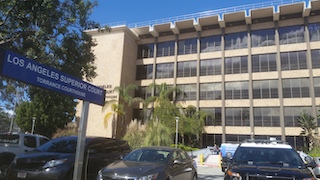In 1994, our client worked for a major U.S. corporation, the identity of which will remain confidential in this summary. He was 29 years old and had served six years in the Navy, mostly aboard submarines. He was smart, disciplined and had a determined demeanor that reflected his ambitions to be highly successful one day.
The culture of the major U.S. corporation included some rather extensive socializing and our client unfortunately got caught up with experimenting with some recreational drugs that others in the company introduced him to in some of the parties. Soon, our client was addicted to cocaine and, in his position as supervisor with check-writing authority from company funds, he wrote just over $8,000 in checks to himself to support his cocaine habit. He then cashed each and bought cocaine that he used.
His supervisor discovered this and in one day, his career was over. He was not only fired, but the police were notified and our client faced a felony grand theft (Penal Code § 487(a)) and felony forgery (Penal Code § 470) criminal complaint in the Torrance Superior Court.
After months of plea bargaining, the case was resolved for a plea to felony grand theft. He was placed on three years of formal probation and ordered to pay back his employer just over $8,000 in restitution. There were no other terms of probation except to obey all laws.
 Torrance Courthouse
Torrance Courthouse
After becoming a convicted felon, he stopped using drugs completely and even had the conviction expunged because he had successfully completed probation. He paid back the full restitution ordered.
He then moved to Oregon and got married. He started a successful accounting business that thrived for over twenty years. He was a trusted accountant to some of the bigger companies in Oregon.
In 2020, he was invited to serve on the board of directors of two businesses who had valued not only his accounting expertise, but his business acumen and advice that often is shared by accountants in evaluating the income, expenses and taxes of a business.
While he was flattered by the invitations, he was concerned that the companies would eventually perform a background check of him and see his prior felony conviction. After all, an expungement under California law does not delete, erase or remove the case history of a criminal case having been filed against someone. Our client also was not a Certified Public Accountant (CPA) due to the prior felony conviction, so he expected questions why he had never sought such a license.
The extra income associated with being on the board of directors for the two companies was needed, as our client’s wife was in poor health and medical expenses were mounting.
The client then called Greg Hill & Associates and asked what he could do, if anything, with his prior conviction. He explained that he had called a few attorneys, but each had told him there was no way of having the felony reduced to a misdemeanor because the case had been dismissed with expungement.
Greg had written several articles, posted on his website, explaining prior results where he had successfully asked a judge to reduce a felony to a misdemeanor after expungement, which the client had read. The client asked about these results.
Greg confirmed that Penal Code § 487(a) is indeed a “wobbler,” meaning it could be filed and charged as a felony or a misdemeanor, depending upon the case facts and the defendant’s criminal history. Greg further confirmed that the case results he posted about his own cases were accurate and furthermore, that the client’s case certainly could be reduced to a misdemeanor. Greg explained that a judge had discretion to deny such a request and in the client’s case, stealing over $8,000 was significant. The judge certainly could deny such a motion. Greg explained how the judge could deny the motion, finding that the client’s conduct was “solidly felony conduct,” as Greg had experienced in other cases where such a motion had been denied.
The client acknowledged this, but asked Greg to file the motion anyways. So Greg Hill & Associates did, preparing a motion for reclassification of a felony to a misdemeanor under Penal Code § 17(b)(3). The motion explained the factual background for the crime, the client’s repayment of all stolen funds and the client’s success in life following the felony conviction.
The judge in Torrance reading the motion kindly granted our client’s request under Penal Code § 17(b)(3), meaning our client could accept the invitations to join the board of directors in the two companies and earn more money to help pay for his wife’s medical needs. Our client was very happy.
For more information about Penal Code § 17(b) issues, please click on the following articles:
 Torrance Courthouse
Torrance Courthouse